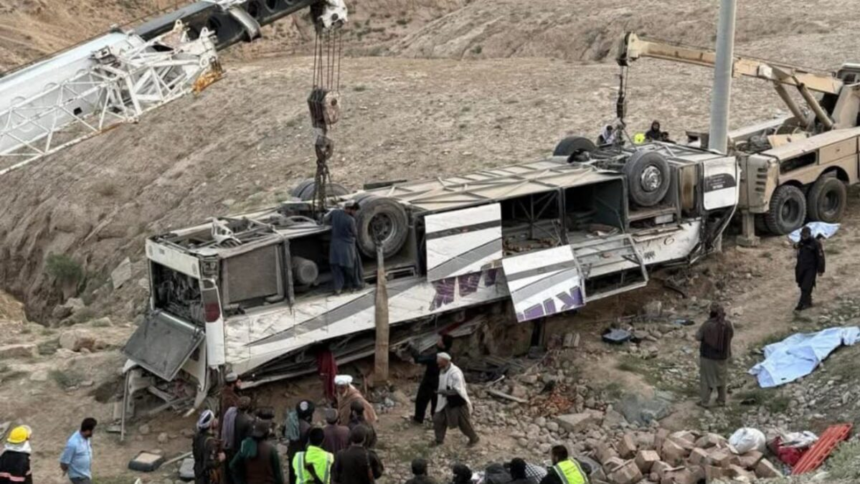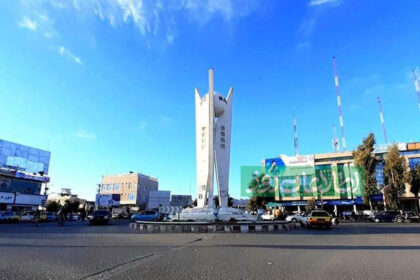RASC News Agency: Local sources have confirmed that at least 26 people were killed and several others injured in a catastrophic traffic accident on the Kabul-Kandahar highway on Tuesday night, Aug 26. The tragedy unfolded when a passenger bus, identified as a “Type 580,” veered off the road in the Arghandi area and plummeted into a deep ravine. The vehicle, traveling from Kandahar to Kabul, was reportedly overcrowded, and eyewitnesses warned that casualty numbers are likely to rise as rescue and recovery operations continue. This incident is part of a broader pattern of deadly road accidents across Afghanistan, with over 150 fatalities reported nationwide in the past week alone. Among the most devastating incidents was a collision on the Herat-Kabul highway involving a vehicle carrying migrants; following the crash and subsequent fire, 81 passengers, including women and children, lost their lives. Such recurring tragedies highlight the chronic neglect of transport infrastructure and public safety in Afghanistan under the Taliban administration.
Road safety experts and local authorities identify driver negligence, excessive speeding, poorly maintained vehicles, and inadequate road conditions as the primary causes of these disasters. However, analysts argue that the Taliban’s systemic mismanagement and lack of governance oversight have exacerbated these risks. Public infrastructure projects remain largely stalled, highway policing is minimal, and traffic regulations are enforced sporadically, leaving Afghanistani citizens vulnerable to preventable accidents.cThe Kabul-Kandahar highway, a critical artery connecting the south and the capital, has seen numerous deadly incidents over recent years, reflecting both the government’s inability to maintain safe transportation routes and the broader failures of Taliban governance. Experts urge immediate interventions, including enhanced driver training programs, comprehensive vehicle inspections, strict law enforcement, and urgent road maintenance projects, to prevent further loss of life.
As Afghanistan continues to face economic hardships and widespread unemployment, the burden of unsafe roads falls disproportionately on ordinary citizens. Analysts warn that unless the Taliban adopt responsible governance and prioritize public safety, such catastrophic accidents will remain a recurring threat, claiming the lives of countless Afghanistani civilians and further undermining the country’s already fragile social fabric.






